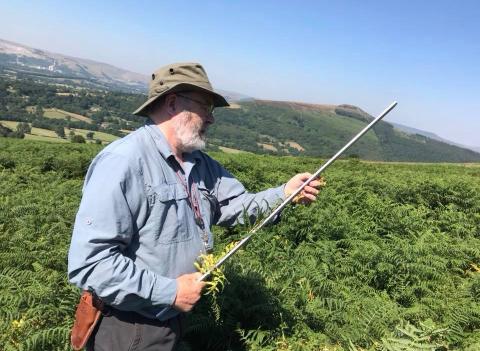A long-term rewilding study at Moor House is among research supported by the award.
Professor Rob Marrs, from the University of Liverpool's School of Environmental Sciences, has been awarded a prestigious Leverhulme Emeritus Fellowship to continue his groundbreaking pioneering research on the management of British upland landscapes.
Professor Marrs, who has been the Bulley Professor of Applied Plant Biology for the last 27 years and currently teaches Ecology and Environmental Science, said: “I am honoured and delighted to receive this award as it allows me to continue my experimental research on land management into retirement."
Rewilding work will be undertaken at the Environmental Change Network’s site at Moor House National Nature Reserve
The award will support very long-term experiments of rewilding across a series of vegetation types where the effects of management removal will be compared to “business-as-usual” management. This rewilding work will be undertaken at the Environmental Change Network’s site at Moor House National Nature Reserve in the north Pennines, where Professor Marrs – a long-standing member of ECN's Scientific and Technical Advisory Group – has been researching for almost 40 years. The experiments are unique in that some were set up in the mid-1950s through to 1967, but have had continued monitoring until 2016.
The award will also allow the continuation of long-term experiments on bracken control in the Peak District. Initially set up in 1993, these experiments (which can be seen from space) are now monitoring the speed of bracken recovery after the control measures have been stopped. The award will provide funds for continued maintenance of these experiments, their annual monitoring and analysis of results.
The Fellowship, which is for two years and starts January 2019, provides assistance for the analysis of these complex, long-term datasets and the presentation of the results at a series of conferences including local ones to inform land managers, national events to inform policymakers and ecological consultants and international conferences to publicise the underlying science at the global scale.
The Leverhulme application was made possible with a great deal of preparatory research over the last ten years funded by the Heather Trust. All of the experiments within the project are long-term intervention experiments and are included in the Ecological Continuity Trust’s national inventory of important experiments.
